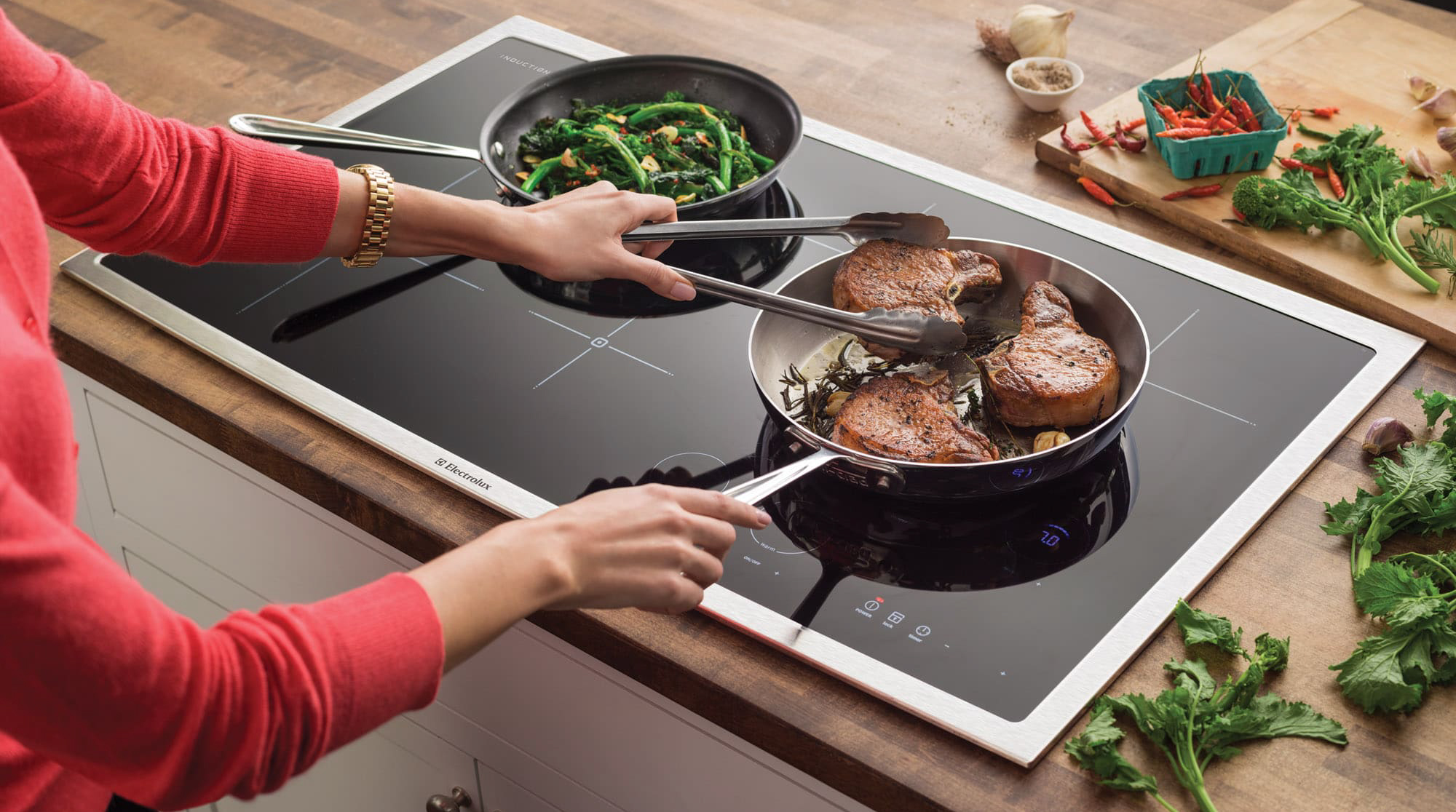Kitchen Wars: Electric or Induction

Cooking is an everyday task, but some days, we as wives have no desire to do it. Having to prep, cook, and clean up afterwards, is just one of those things that can drive us all a little crazy.
As a wife, there are days that I come home from work, look at my stove, think about the mess I am going to make, and I just give up and call for takeout. Some nights, I have no desire to deal with my stove and oven.
Every stove has its own way of cooking with some being better than others. Let's look at the difference between electric and induction stoves. We will look at the safety, ease of use, economy, and cleaning of each cooktop.
Sometimes a better stove makes a world of a difference!
Electric cooktops
- Safety: They are safe, but do have a downside. Unlike induction stove tops, these heat the whole element. This means that if your pot or pan is smaller than the heating element, you run the risk of burns. This just means putting a little extra elbow grease into cleaning.
- Ease of Use: These are simple to use but they can take a few minutes to heat up; fortunately, they get hot and stay hot. It can be tricky to change the temperature, but it only takes a few minutes.
- Economy: These tend to run cheaper than induction stoves. They are also simple to maintain since many people use them. Most people prefer them if they are looking for something long-lasting and easier on the wallet.
- Cleaning: Electric stove tops are easy to clean. They are easy to wipe off - just clean them like you would your counters. Just remember that food is more likely to bake onto the stove causing a little more work.
Induction cooktops
- Safety: Some models coming out have child safety locks built in. Your kids can't turn on the stove when you're not around! The stovetop also only sends heat to where it is needed. If the pot is a little smaller than the size of the burner, it only heats where the pot is touching.
- Ease of use: The heat is instant with induction, versus electric stoves, where you have to wait for the burner to heat up before it will heat the pot or pan. This will start heating up instantly which saves on time, heat loss, and energy.
- Economy: These stoves don't use as much energy as its electric counterparts. These stoves do tend to run at higher upfront costs than electric stoves do. Over time, they will pay for themselves, but there is a difference.
- Cleaning: The great thing about these stoves is that the heat only goes to the pot or pan. If you happen to overflow, the food will not get baked on as easily as on an electric stove. All you do is wipe off the stove like you would your counter.
It all comes down to your personal preference. Cooking for your spouse and family, cooking in general, should be fun and with minimal craziness. Having an oven and stove that you like to cook with makes all the difference. Be sure to do some more research and ask around. Find the one that's right for you!
Whether you are replacing an existing appliance, or undertaking a kitchen renovation Powerix Electrician can help you with the installation of your new appliances.
